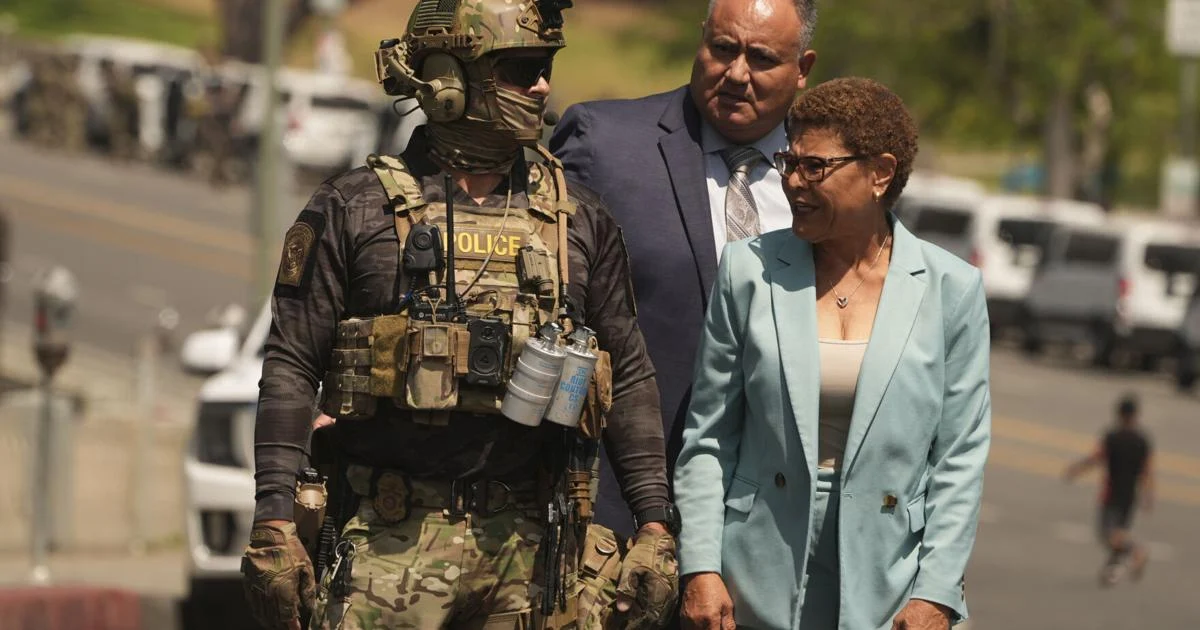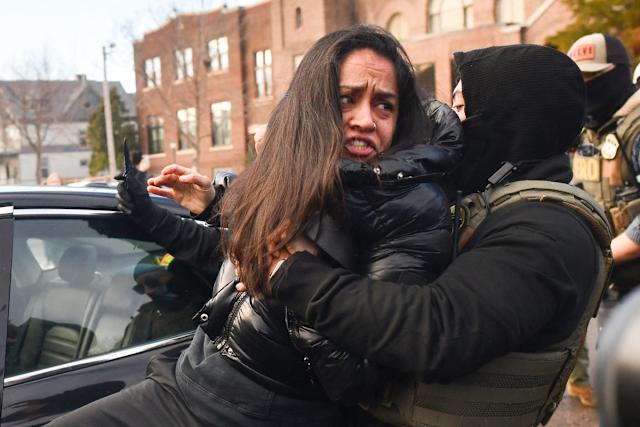A high-profile legal ruling restricting U.S. Immigration and Customs Enforcement (ICE) activity in California has sparked political tension, but federal authorities say enforcement will continue as planned. Bill Essayli, acting U.S. Attorney for the Central District of California, stated that a recent court decision will not change ICE’s operational strategy in the region, despite a judge’s findings that the agency may have violated constitutional rights.
The controversy centers around a 53-page temporary restraining order (TRO) issued on July 12 by U.S. District Judge Maame Ewusi-Mensah Frimpong, an appointee of President Joe Biden. The order restricts ICE’s ability to conduct immigration stops within the Central District of California—an area that includes the greater Los Angeles region. Judge Frimpong’s ruling was in response to a civil rights lawsuit alleging that ICE agents routinely used discriminatory and unlawful methods when making stops and detentions.
The judge ruled that ICE agents may no longer initiate investigative stops without specific and articulable “reasonable suspicion” that an individual is unlawfully present in the country. Furthermore, she barred the use of certain indicators—including race, ethnicity, language, accent, neighborhood, or type of employment—as primary factors in making such judgments. Citing the Fourth Amendment, the ruling emphasized the importance of protecting individuals from unreasonable searches and seizures.
The order also imposes new reporting requirements on ICE. Agents must now document the justification for each stop, maintain thorough records, and submit those details for oversight. The agency has also been ordered to develop comprehensive training programs for its personnel to ensure proper adherence to constitutional standards.
Despite the sweeping nature of the court’s decision, Essayli dismissed the suggestion that it would hinder immigration enforcement in any significant way. “We strongly disagree with the allegations in the lawsuit and maintain that our agents have never detained individuals without proper legal justification,” Essayli said. “Our federal agents will continue to enforce the law and abide by the U.S. Constitution.”
Essayli also criticized local political leaders, particularly Los Angeles Mayor Karen Bass, who has supported sanctuary city policies and lauded the court’s ruling. In a public statement, Bass praised the decision as a win for constitutional rights and for the safety of Los Angeles residents. “Today, the Court ruled in favor of the United States Constitution, of American values and decency,” she said. “This is an important step toward restoring safety, security, and defending the rights of all Angelenos.”
In a separate interview with Fox News, Essayli suggested that rhetoric from Bass and other Democratic officials is contributing to a rise in hostility toward federal agents. He referenced recent incidents, including a shooting involving a man who fired at ICE agents in Ventura County and a coordinated attack on an ICE facility in Texas.
“You have the politicians in California who are being openly hostile to the federal government,” Essayli said. “We are doing our job. We are enforcing federal immigration laws as written by Congress. If Karen Bass didn’t like the law, she should have changed it when she was in Congress.”
He went further to claim that public opposition is encouraging acts of obstruction and even violence against federal officers. “She’s signaling to the public that it’s okay to stand up to federal agents, to obstruct them, to impede them, and yes, in some cases, to attack them,” he stated. “We are not going to be dissuaded.”
Essayli concluded with a firm stance: “We will not be intimidated, and we will not be deterred from accomplishing our mission.” He also emphasized that the presence of military support remains crucial in protecting ICE personnel operating in increasingly tense environments.
The legal case is still ongoing, and the TRO remains a temporary measure. A full hearing is expected in the coming weeks, which may result in longer-term limitations—or reversals—depending on the outcome.

Sarah Mitchell is a bestselling novelist recognized for her insightful and emotionally resonant stories that explore the complexities of human relationships. Originally from Denver, Colorado, Sarah grew up in a family of teachers who nurtured her curiosity and love for storytelling. She studied psychology at Stanford University, where she became fascinated by the intricacies of human behavior—an interest that would later shape her writing career. Sarah’s novels are praised for their nuanced characters, intricate plots, and ability to capture the subtle tensions that define love, friendship, and family ties. Her breakthrough novel, The Spaces Between Us, became an instant bestseller, lauded for its honest portrayal of strained family relationships and the fragile bonds that hold people together. Since then, she has published several works that continue to captivate audiences around the world. Outside of her writing career, Sarah is passionate about mental health advocacy and often partners with organizations to promote awareness and support for those struggling with emotional well-being. Her personal life is quieter—she enjoys hiking in the Colorado mountains, practicing yoga, and spending time with close friends. With each new book, Sarah Mitchell cements her reputation as a writer who illuminates the beauty and struggles of human connection.









